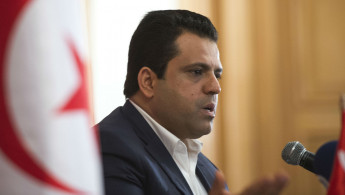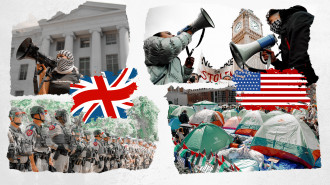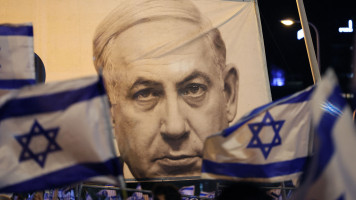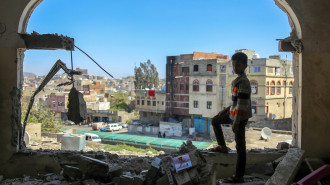The rise and rise of Slim Riahi
To general surprise, two weeks after being appointed Tunisia's prime minister, Habib Essid announced his new government.
The surprise came from the fact that his new cabinet list contained no members of the country's major Islamist party, Ennahdha, even though it is the second largest party and its inclusion was expected to reconcile secularists and Islamists and guarantee Tunisia's democratic transition.
Instead, Essid chose a minor party linked to a go-getting young businessman, Salim Riahi, as his preferred coalition partner, alongside a predictable list of ministers chosen from the largest party, Nidaa Tounes.
Riahi is typical of the new generation of businessmen coming to the fore in Tunisia. He was born in 1972 in Bizerta, before his family moved into exile in Libya. His father, an Arab nationalist, was opposed to the regime of Habib Bourguiba.
As a result, Riahi grew up in Tripoli and graduated university there. After graduating from university in Tripoli, He was able to exploit new opportunities given to the private sector by the Gaddafi regime, became active in oil, aviation and property and co-operated with UK and US firms operating in Libya.
| The road to democracy: Read al-Araby's coverage of the Tunisian revolution |
There were also rumours that he was close to Muammar Gaddafi's second son, Saif al-Islam, who had many private business interests.
Riahi later moved to the UK and acquired British nationality, but moved to Tunisia after the revolution in 2011, and created Union Patriotique Libre, a centrist, business-friendly secular political movement endorsing neoliberal economic development policies.
He has also invested an estimated $70m in various projects, most notably in the media, buying a 20 percent stake in the media group Dar-Assabah, which publishes the leading Assabah newspaper, and has ambitions to move into the broadcasting business.
Unfortunately, these ambitions may clash with his political concerns. Tunisia looks with some disfavour on media tycoons, especially if they also have overt political interests.
This has meant that, so far, Riahi's television ambitions have been held in check, although it has not interfered with his print media activities.
Media proprietors have been quietly trying to change a law that separates media ownership and politics, as enshrined in decree-laws 115 and 116 of 2012. At least one member of the media regulator, HAICA, resigned in protest at its regulations last March when they were published.
| Tunisia looks with some disfavour on media tycoons, especially if they also have overt political interests. |
The member, Mohsen Riahi (apparently no relation), had represented the media proprietors on HAICA and his resignation was seen as the beginnings of the campaign for repeal.
Slim Riahi has not let this stop him from creating a public image, however. Not only did he found the UPL but he also hired four aircraft to bring back Tunisian migrants from Libya when the political situation there worsened in 2012.
He has also engineered his election as president of Tunisia's most famous sports club, L'Union Africain, and owns the country's most successful football team, Club Africain.
It is no surprise, therefore, that his business and political interests have brought comparisons with the former Italian prime minister Silvio Berlusconi, who owns media networks and the football club, AC Milan.
Now his political party has been favoured by the new prime minister, and a place at the political top table seems secure.
There is no doubt that Riahi has been spectacularly successful at reinserting himself into Tunisia's new public life and that he reflects a kind of moderate, secular modernist who many older Tunisians favour.
Many others, however, do not have such sympathies. Since the new cabinet has to be approved by parliament, three parties – Ennahdha, the Popular Front and Afek Tounes – has made it clear that they will not accept the proposed cabinet, not least because they all had ambitions themselves.
Yet they form an unlikely coalition - Ennahdha has long been ferociously opposed by the left-wing Popular Front, while Afek Tounes is a moderate secular party with an economic programme very similar to that of the UPL.
Their opposition to the proposed government is united around two things - their own ministerial ambitions and their determination to ensure that the remnants of the old regime, allegedly the core of Nidaa Tounes itself, doe not return to power. In this new power-play, Riahi and the UPL might soon find itself pushed aside.



